EXCLUSIVE INTERVIEW
##Hard Rock Café presented ‘Seguridad Social’ with an award for having sold a million albums. They are one of Valencia’s most successful rock bands ever. They have recorded over 20 albums in Valencia, Madrid and Los Angeles and they have toured North and South America a number of times. In this exclusive interview, ‘24/7 Valencia’ met up with their singer/guitarist and leader José Manuel Casañ in the historic centre of Valencia. ‘Chiquilla’ was their biggest single and was released 30 years ago…in the summer. This “rumba-rock” classic reached number one, in July of 1991, in the ‘40 Principales’ hit parade!
24/7 VALENCIA 1. Tell us something about your background and upbringing…
JOSE MANUEL CASAÑ OF SEGURIDAD SOCIAL: I’m from a pueblo near Valencia called ‘Benetússer’. At the age of six, at primary school, I was fortunate enough to have an open-minded music teacher who played the guitar and loved the bands of the sixties. I started to sing in a choir at that young age. We sang children’s songs and the hits of the day. Even then, I got a wonderful feeling from performing on stage and that feeling stayed with me. It was an organic process, as I started getting involved in theatre from the age of twelve and then started playing in bands from the age of seventeen…
2. What got you interested in rock’n’roll?
I was a massive fan of The Beatles. My dad would bring back vinyl records from trips abroad to London and I fell in love with their music. However, I was also listening to La Rumba including artists like ‘Peret’ and ‘El Pescadilla’ and ‘Bambino’ and I was also listening to bands from Catalunya like ‘Rumba Tres’ in the 1960s-70s.
When ‘Punk Rock’ arrived, it really hit me and I just knew that that was what i wanted to be involved with from then on! Three chords, the attitude, everything fast, do-it-yourself even if you’re not schooled in music or a virtuoso…all those things attracted me to it. I didn’t see punk as a way of life specifically, more like a window into a world where I could develop myself and form a path in music. My favourite band would be ‘The Clash’. It wasn’t just punk, they could do reggae and pop and rock with a lot of personality. I love ‘The Ramones’ but if you’ve heard one of their songs, you’ve heard all of them.
Regarding ‘The Clash’, I was in touch with their former bass player Paul Simonon. It was to ask permission to do a Spanish version of their song ‘Train in Vain (Stand By Me).’ He was cool about it and The Clash members got our demo and gave us the thumbs up to go ahead with releasing our reggae version of their song. Famous bands can sometimes be assholes about giving you permission regarding releasing compositions. ‘The Clash’ were very accepting and friendly about the whole situation, which reflects well on them.
3. Can you tell us about the early days of your band “Seguridad Social”?
We formed the group under a different name in 1981 and did 3 shows with the name for our band but it didn’t really fit. We were out partying in the Barrio del Carmen of Valencia one evening and we got confronted by some punks and a fight ensued. We ended being taken to a ‘Centro de Salud’ for our injuries. While were getting stitches put in, we saw the name ‘Seguridad Social’ in one of the corridors of the ambulatorio and something clicked! Given that our lyrics were full of protest, we saw the name ‘Seguridad Social’ as perfect in representing us a band.
We started out playing in Valencia and it was really complicated to play outside of the region and it still is. We are an amiable city and an open people & affable to visitors but we can be a bit cruel to our own. Spain is like that, in general, but Valencia particularly has that tendency. For the first 10 years or so, we played nearly always in Valencia. It wasn’t until we started to play in Madrid that things started to take off for us.
We weren’t a band that had connections in the world of show business. My father was a baker and another member of the band had family working in a furniture shop, for example. We came from humble backgrounds so we didn’t have ‘mecenas’ (powerful & influential people) to help us make it in the difficult world of music.
For 10 years of gigging and recording, we were forming our own personality and sound with a lot of ‘Anglo-Saxon’ influences too. As time went on , we realized that we still loved the sound of Peret’s Rumbas that we had grown up with so we thought: Why not incorporate that Spanish music into our sound? From that time up until now I can be influenced by Caribbean music, music from Andalusia and Rumba Catalana when it comes to composing for ‘Seguridad Social.’
I’m currently composing a ‘Jota’ that is a type of music associated with Aragón but is probably nearer to Mexico, in spirit. You can also find Jotas in Valencia and the Canary Islands…and really the ‘fandango’ is related to the ‘jota’ too. What I also mean to say is that flamenco is not really just Andalusia. You will find flamenco in Salamanca and you can find Rumbas and Jotas throughout Spain. Valencian songs (‘Cant Valencià’) include plenty of fandangos but we often only look to Andalusia as a reference for this type of music.
4. Describe some memories of recording days with ‘Seguridad Social’
We had a punk attitude in the early days but we also started recording in really good studios in Valencia and Madrid. Back in the day, we recorded in Valencia at ‘Tabalet’ studios with the international record producer Andy Wallace who was a big deal in New York in those days and still is now. To put it into perspective, after recording us, Andy Wallace went on to record & produce Jeff Buckley’s ‘Grace’ album and then did the mix for Nirvana’s ‘Nevermind’!!! He’s worked with Prince and Paul McCartney too.
We weren’t faffing about and we aimed high and had sent demos to top producers like Rick Rubin in the States, amongst others. Andy Wallace had heard our music, liked it and saw that he could kill two birds with one stone by recording with us in Valencia and taking a break from his family! Andy Wallace came to Valencia because he had fallen out with his wife and was looking to disconnect from his domestic situation.
Later, we met Andy Wallace again when we played ‘The Palladium’ in New York …and he was now reunited with his wife who came to the show too. So the story ended well for everybody, which was wonderful.
Andy Wallace chose ‘Tabalet’ studios for us because he wanted “a big room” that could capture the excitement of a band playing live and together at the same time. Sure, you could overdub here or there afterwards…but he wanted to capture the force of the whole band playing together in an ample ‘sala’ with just the singer cordoned off in a cabin. ‘Seguridad Social’ had the good fortune to play in the best studios with the best engineers and producers in different countries, including ‘Studio One’ in New York. We also recorded in Puerto Rico and, most of all, in Los Angeles.
In the 1990s, we were practically living between L.A. and Spain. At the time, it was really interesting what was happening in the City of Angels. Rock’n’roll was going through a revolution with bands like ‘Los Fabulosos Cadillacs’ (from Argentina) and ‘Manà’ (from Mexico) a bit later on. There were also bands from Puerto Rico, Venezuela and Chile in Los Angeles. We had all absorbed Anglo-Saxon rock and we were all reaching the same conclusions…to include Latin folklore from our own cultures in the mix.
Los Angeles is basically like a frontier town or city. Just the name itself sounds like a ‘mestizo’ on all fronts. From a rock’n’roll point of view, I felt a real connection with L.A. but less so with New York. Miami is more of a “pop music” type place with artists like Alejandro Sanz. Like Valencia, Los Angeles has palm trees and sunshine so I could really relate to it and we felt really at home there. (Laughs) L.A. is not such a great place to learn English these days… and Miami even less so, as everyone speaks Spanish there now!
Latin Rock was happening in Los Angeles in the 90s and we had a great time there. Our friends over there were from Mexico and Chile and Venezuela. We might record an album for 3 months in L.A then come back to Spain and then return again to play ‘The Roxy Theatre’ on Sunset Strip in Hollywood. We ended up doing three albums in Los Angeles.
However, to crossover in the States is really difficult for a Spanish band. It’s a bit like Japanese doing flamenco. ..however brilliant they might be, it is really complicated being accepted. Rock’n’roll is a universal language but our aim was always to fuse rock with influences like rumba and then tango and so on. Indeed, we later did albums with electric guitars & acoustic Mediterranean instruments with Turkish & Greek & Italian influences.
5. What was it like working with Bruno Lomas?
I remember being just 9 years old, looking into the mirror and singing along to Bruno Lomas songs with my mother’s hairbrush as a microphone! I discovered the music of Bruno Lomas on the radio even before Elvis Presley. The first rock songs that I heard in Spanish were sung by Bruno Lomas. He had a really potent voice and that has stayed with me. He has always been a reference for me in music. I don’t know of any Spanish rocker who has been more important than Bruno Lomas on a national and international scale, only Miguel Rios comes close to Bruno. For example, I would categorize Nino Bravo as more melodic type of music and not rock’n’roll.
As ‘Seguridad Social’ got better known, we got to know Bruno in person. He had the rock’n’roll attitude that set him apart. One of the most mystical experiences of my life was sharing a microphone in the studio with Bruno Lomas and facing each other. I couldn’t believe it…If it was cake, I would have liked to eaten that special moment! We also had the good fortune to play live concerts a few times with Bruno Lomas and with 30, 000 people in attendance in Valencia too. As time went on, Lomas started to play to less and less people. He didn’t like playing the game of doing radio interviews to promote concerts and that didn’t help him in the long term. As a person, he came across as muy alegre (very cheerful) and very much his own man, living in the Valencia region all his life. He was an extraordinary person really.
6. What are your memories of ‘Seguridad Social’ touring Spain and Latin America?
As the band got more successful, I started travelling abroad a lot to Latin America (Puerto Rico, Cuba, Mexico, and Argentina) and we started to love to fuse Rock music with Latin music and Salsa with ‘Son Cubano’ for example. I didn’t want to start fusing those special sounds until I had actually visited these countries in person and experienced the music in the flesh. Fusing musical styles is not something new really. If you look at Peret, he was absorbing the ‘Mambo’ music of musician and actor Cuban Pérez Prado of ‘el rey del mambo’ fame and that was an influence on his own music in Catalunya. When the Cubans went to war in Angola in the 1970s, they re-discovered their African roots in music and went back to Cuba more African than ever.
Regarding the cajón, it comes from the black rhythms of Peru and has its roots in slavery. The slaves were not allowed to play drums so they adapted the cajón as a percussion instrument. Flamenco had palmas and tacones and some bongos and here was something that had all of these rhythms and sounds in just one percussion box drum! Paco de Lucia discovered the cajón whilst on tour in Peru and became fascinated by its sounds and started playing guitar along with it from 1977 onwards. The cajón is now an integral part of flamenco as we know it today.
Raimundo Amador and Kiko Veneno started to fuse flamenco with rock. My band ‘Seguridad Social’ looked to fuse rumba or salsa or merengue with rock but with a more punky attitude, including distorted guitars. If you look at the music of Led Zeppelin and The Rolling Stones, they were influenced by their travels to Morocco and the country’s distinctive rhythms.
7. Do you miss the excesses and liberty of Spain in the 1980s?
Yes, I do. I miss that pretty much anything could be discussed…like hearing political conversations on the radio that you would just not be able to get away with now. Everything is so politically correct now. Irony has died with the overuse of social media…unless you add lots of symbols! However, I do not miss the frequent violence of those times.
You have to imagine that in Spain at the end of the 1970s and early 80s, all the tribes were in one place at the same time…there were skinheads, mods, rockabillies, hippies and everyone sort of knew each other. You can imagine that, after a dictatorship, there is an explosion like a cork bursting from a bottle of champagne! People were starting to openly smoke joints in plenty of café-bars in Valencia to calm themselves down…
In Valencia, the ‘Ruta de Bacalao’ took off. For us rockers, we went to the legendary discos like ‘Barraca’ and ‘Chocolate’ who at the time were still putting on some great rock concerts. When they started to put ‘bacalao’ music on we would go to the bar for a beer and come back later when a record by The Sex Pistols or Iggy Pop was on the turntable again. Sadly, what happened is that ‘La Ruta de Bacalao’ became infamous due to national television reports and then became a national phenomenon. From then on, the discos put their commercial interests first and only started to play ‘bacalao’ techno-type music to attract punters from all over Spain. Unless you were off your head, I found it very difficult to listen to that kind of repetitive music at a club all night. So, us rockers would seek out little dives and interesting places like ‘La Gasolinera’ to listen to ‘Creedence’ and rock’n’roll and blues tunes. At closing time, sometimes we would head to the rehearsal studios for a beer and a jam and maybe a bit of action if we were lucky that night!
8. Despite international success, you never left Valencia. What is the attraction for you to live and work here?
There are lots of reasons I stayed in Valencia. The weather and the people, for a start. I think that the climate influences the way people are. What i mean to say is that you won’t find this kind of ‘alegria’ and way of life anywhere else in Spain. The light is very important here too, as Sorolla demonstrated so well in his paintings. Madrid is far too big a city to live comfortably in…
9. Can you tell us about your friendship with Paco Roca?
It’s an extraordinary friendship that has developed over a good number of years now. He has always been interested in music and I have always been interested in comic books, so that was something we already had in common. We started meeting every week at ‘Mercado Tapineria’ for Ramon Palomar’s radio show and then we’d all go off have lunch and drinks and long conversations and it started from there. We then started meeting up at the same restaurant near Plaza Ayuntamiento every week or every month over a 4 year period. We had been acquaintances before but we became really great friends, including going sailing together with our respective families. On some levels, Paco’s comic book ‘La Encrucujada’ is about what our musical influences were growing up but also how our friendship was forged by all those meetings.
10. What is the concept of the album ‘La Encrucijada’?
Initially, the idea had been to tell ten stories about key musicians from the history of popular music like Robert Johnson, Carlos Santana, Bob Marley, The Beatles, Elvis and more. The idea was to compose our own songs but in the spirit of these legends. An example would be the track ‘Karma Dharma’, which is done in the psychedelic Beatles style with a sitar included. In the book version, Paco Roca illustrates George Harrison coming across a sitar on the set of the film ‘Help!’ and becoming fascinated by the Eastern instrument and studying it from then on.
It’s a great fun as a concept in practice because you are putting yourself in the shoes of legends. How would Santana have done this song on ‘Abraxas’? Well, lots of Latin percussion underneath and guitar solos on top and Hammond B3 organ holding it all together! Obviously, you are putting your own personality into the songs but you are allowing yourself to be influenced and guided by the greats.
The blues number is another example. I have an old ‘Dobro’ that i bought in New York ages ago and we used it for that track because it fitted the feel of the blues along with the slide guitar. We even thought about adding the crackle of vinyl for that track.
We were also influenced by the Coen brothers film ‘O Brother, Where Art Thou!’, which showed that you can have a new sound with old music. This convinced us that we didn’t have to do an album that sounded like it was purely from the 1920s or 1930s…but that we could use the new technology to come up with something distinctive. We made sure that, though the styles of music were different on each track, there is a common thread and feel that unites them and that makes it an album that you can listen to from start to finish. It is an eclectic work and you will find genres like Reggae, Rumba, Rockabilly, Son Cubano, Blues, Country, Heavy Metal and more on ‘La Encrucijada.’
11. Can you tell us something about last year’s concert in Valencia?
The concert was sold out so it was also seen by streaming. It was a combination of live concert by ‘Seguridad Social’ with Paco Roca painting and question and answer sessions with the public between songs and anecdotes too.
12. How would you define yourself as a guitarist?
I don’t think I’m a good guitarist but I love a good riff. I love the silence between the notes. I’ll tell you a little story about our biggest hit ‘Chiqullia.’ Before it was released to the public, I was in Madrid, at the house of ‘Radio Futura’ musician & good friend Luis Auserón. I played him the demo of ‘Chiquilla’ and it was a droning, plodding Ramones-esque version of the song. After listening to the song, Luis simply said to me: “José, have you ever considered how beautiful silences in songs can be?” Just by saying that was enough to help me find the right riff for the song, a stop-start type guitar line… a bit like the Stones or AC/DC. Once it was released on both sides of the Atlantic, ‘Chiquilla’ ended up being our most emblematic song.
13. Tell us about your view of Valencia Club de Futbol at the moment…
I don’t think that the club will disappear but I do see the current owners as being very distant from the fans. They are selling our best players and I don’t really know how much of a team we have left, to be honest. The sensation that I have is one of not being sure that we now have un equipo that can compete for something.
As a fan, I started going to Mestalla back in the 1960s and I remember seeing players like Claramunt, Abelardo and Barrachina. I experienced the ‘Di Stefano’ period when Valencia won the league in 1970-1971. I also have a clear memory of going to Mestalla, for the first time, with my grandfather and I have never forgotten that day. I have also composed 2 songs for Valencia CF, one called ‘Amunt Valencia, honor y gloria’ to celebrate the centenary.
14. What are your plans for the future?
As far as music goes…I’m very interested in the audiovisual world. I’m planning to do 6 songs with musicians invited from around the world for six chapters for television and with Paco Roca dealing with the visual side too.
Interview by Owl
Article Copyright 24/7 Valencia
Related Post
This site uses Akismet to reduce spam. Learn how your comment data is processed.


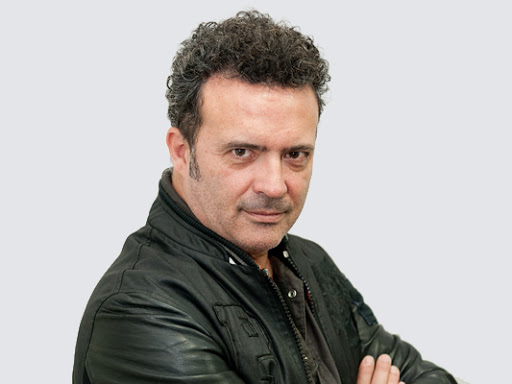
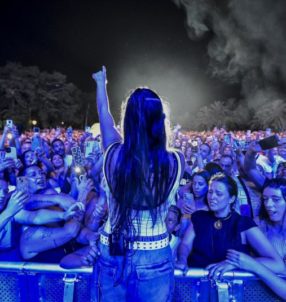
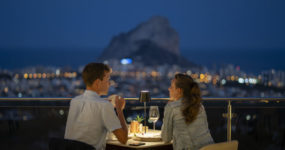
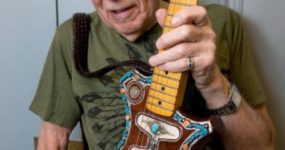
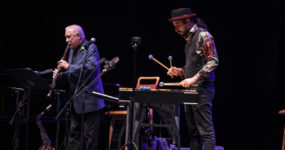
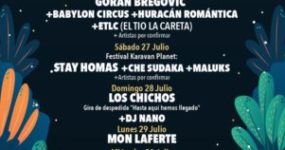

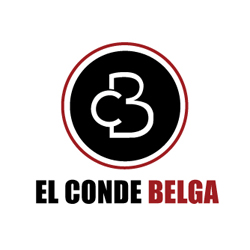













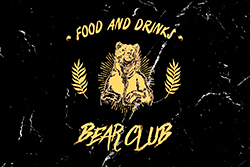

Leave a comment